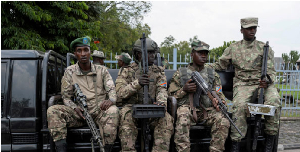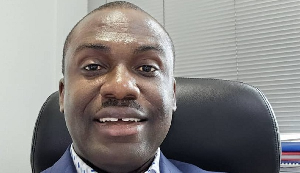Participants at a stakeholder’s forum organised at Bolgatanga in the Upper East Region, have charged the Labour Commission to remain neutral when handling and settling cases between Labour Unions and employers.
The participants alleged that hardly have they observed the Labour Commission adjudicating cases in favour of the unions.
The forum was organised by Action Aid Ghana (AAG), a non-governmental organisation (NGO) under the multi-country project titled “Zero Violence”, funded by the Foreign Commonwealth and Development Office of the UK Government.
The project being implemented in partnership with Frontline Aids and ActionAid UK, attracted employers from the non-formal sector.
“We all know that as a Labour Commission, you are appointed as Independent Body and supposed to remain neutral in the dispensation of your duties and not to be taking sides. We are highly disappointed in the action and posture often taken by the Labour Commission during settlements of cases between Labour Union and their employers,” they stressed.
The participants were of the view that Labour Unions and the general public had lost confidence in the Commission, and urged it to work hard to reverse the trend.
“As an independent body, you are not the appendage of one party. You must be seen as neutral in the discharge of your duties and obligations and not seen to be always supporting one side,” they added.
Reacting to the stakeholders, the Regional Labour Officer, Mr Abdulai Salifu, urged Labour Unions to endeavour to exhaust all grievances and procedures before resorting to other means, to avoid losing their cases with their employers.
The Programmes Officer of AAG, Mr Yakubu Akuka said the NGO was implementing the project with state institutions, particularly the Labour Department in the Upper East, Northern, Bono, Bono East, Greater Accra, Upper West and Volta regions.
The purpose of the project is for stakeholders to work with law/policy-makers and civil society organisations, to improve protection and increase participation of women and girls and other marginalised people, especially in the informal workspace, by championing the protective legislation like ILO conventions, the Labour law and Domestic Workers Regulations 2020, strengthening enforcement mechanisms.
“We are also building capacities to ensure that marginalised people are able to address, report and seek justice against violence in their communities, and workplaces,” Mr Akuka stressed.
He explained that at the regional level, the project sought to train employers and employees in the informal economy on ILO conventions 183, 189 and 190, the Labour Act 2003 and the Domestic Workers Regulations, 2020, and promote unionisation of informal workers.
Mr Akuka stated that in the wake of COVID-19, the ILO had reported 50 per cent of working women facing occupational violence, especially those in the informal sector.
General News of Tuesday, 9 February 2021
Source: ghanaiantimes.com.gh







![Isaac Kwadwo Ampong [L] and President John Mahama Isaac Kwadwo Ampong [L] and President John Mahama](https://cdn.ghanaweb.com/imagelib/pics/549/54996138.295.jpg)





